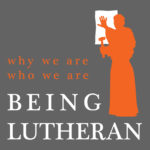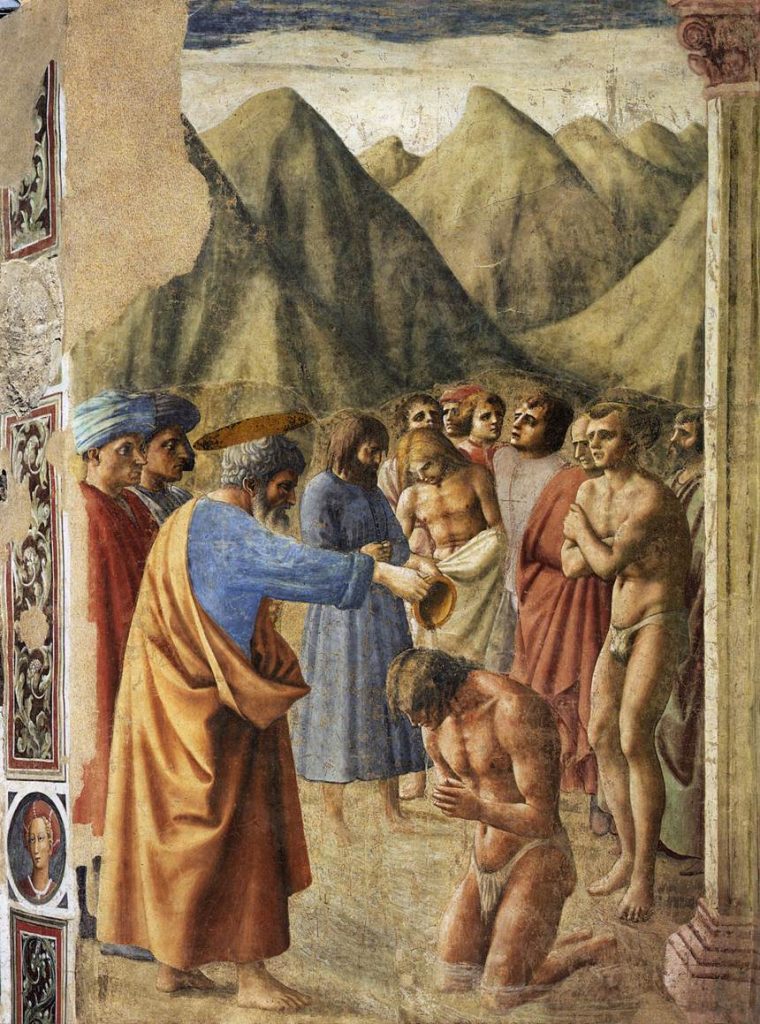
/
RSS Feed

In this episode, Brett, Brian, and Jason continue their discussion of the Sacrament of Baptism from Luther’s Small and Large Catechisms. Salvation was won for us on the cross, but it is delivered through the means of grace. The nature of the Sacraments is that they are external to your experience. This makes the promises delivered in the Sacraments sure and certain and comforting.

Thank you. I am transitioning from confessional Presbyterianism to Lutheranism and have a question. I understand and agree with monergism, that repentance and faith are gifts of God given via the Holy Spirit through the word of God. We are incapable to repent and believe in our own. Thus as a Presbyterian I had no objections to
Infant baptism.
Without bringing the truths of election into the conversation it is commonly agreed that the efficacy of the word doesn’t guarantee repentance and faith to all who have the gospel declared or preached to. If a pastor shares the gospel to a room of 100 people not all will repent and believe. We know those who do can take no credit. They were no better, wiser or more clever than those who didn’t repent and believe. With all that said, my confusion with the Lutheran view of infant baptism is the seeming assumption or belief if 100 babies were baptized all 100 of them would be declared regenerate and forgiven with repentance and faith.
Is this the position of confessional Lutheranism and is this not incongruous with the word of the gospel in it’s preached form? I understand Lutherans reject ex opere operato, That faith alone is the instrument. However, my ignorant outside take is the Lutheran view of the efficacy of infant baptism is similar to ex opere operato. Not that the rite is magical and works automatically. No, but what is ex opere operato is the head for head gifting to every infant repentance and faith, whereas it isn’t for adults. I don’t understand how this is true.
It seems the word of the gospel and it’s efficacy shouldn’t have this disparate result. If it does then it seems man or the infants are ultimately contributing something, a better disposition as it were, or lack of obstacle as Roman Catholics say.
It is my understanding though of monergism we all humans with our deep fallen condition have an obstacle preventing us the ability to perceive and desire and will to repent and believe. Yet it seems every baby is saved in baptism but not every adult preached to is. Can you help me understand the Lutheran position on this? I don’t intend any of this in an argumentative or polemic fashion. I truly need help. It’s a stumbling block to me and my family.
Thinking million of babies are baptized and a large percentage “lose” or fall away from the divine mongergistic gift of faith is baffling to me. I am not rejecting apostasy but wonder why there is a perfect head for head gift of faith and repentance for babies and not adults when the gospel is declared in word and sacrament. Since monergism overcomes our fallen inability to belief giving God all the glory it seems some different understanding of the human condition may be at play here. Your help is appreciated.
Michial, I’m a little surprised Jason has not replied to your question, and he may yet, but let me give it a try.
By no means do I mean to dismiss your question, and I will try to answer it more specifically also; but I would first suggest that one of the big differences between us Lutherans and our brethren of the Reformed tradition is in our willingness for there to be mysteries and paradoxes in our theology. Calvin seems to have had a need to be able to explain everything in a humanly reasonable way. Luther on the other hand chose simply to believe what the Word says reasonably read, that is in a plain and reasonable understanding of what the text says. This difference will show itself most visibly in how we differ in our theology of the Sacraments (called signs, symbols, or ordinances in the other traditions).
Because we confess Baptism is a means of grace, we do believe that its effect is salvation. I draw this conclusion primarily from Romans 6, but you can reference the other verses mentioned in the podcast. God allows us to participate, God invites us to participate, God works our participation in the death, burial, and resurrection of Jesus through baptism. In that participation our old nature is put to death and a new nature is raised in its place. This is all the work of God and thus monergistic (is that a word?). We believe that God does not limit the gift based on our age, I suppose much like we give gifts to our children even before they are born.
So then the mystery. Why are there so many who were baptized who are not saved? I think the answer lies in the answer to a similar question. Why is anyone not saved? Here we try to make sense of the mystery by allowing there to be paradox and also separating the two states of salvation into separate questions.
Why is anyone saved? Because God has so chosen.
Why is anyone lost? Because he or she does not believe (have faith).
How can a person who was baptized be lost? Because he or she does not believe (even though he or she was given the gift of faith in baptism, the gift has not come to life??? and we are willing to just let that be without necessarily needing to find an answer).
And pretty much that is where our conversation ends. We are willing to let that paradox/mystery just be. We are willing to let God be God without feeling like we have to fully understand Him or even tell Him how to be God. We are willing, here, to let the Scriptures speak without needing to rationalize away the difficulties.
Peace!
Christian,
Michial also sent the question via e-mail, and I saw that first and responded there. Thank you for your comments!